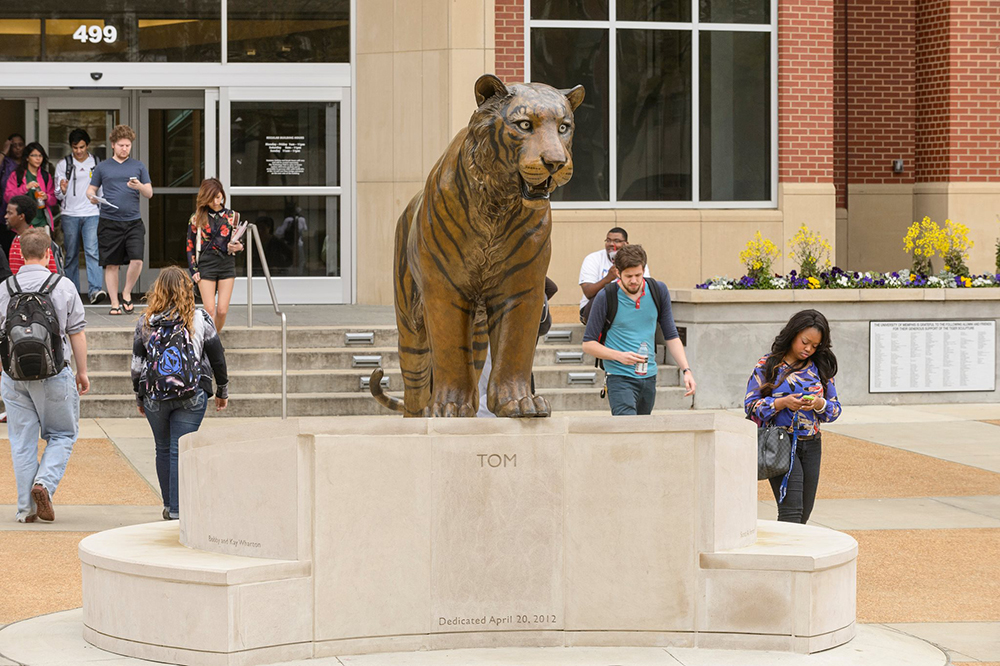The University of Memphis (U of M) is again the safest large college campus in Tennessee, according to a new report from the Tennessee Bureau of Investigation (TBI).
This is the seventh time in the past 10 years that the university has been ranked the safest of the state’s 10 large campuses.
“The [U of M] continues to have a strong safety record by putting students first and making campus a safe and welcoming place to be,” said U of M President Bill Hardgrave.
Crime on all Tennessee college campuses fell 4 percent from 2020 to 2021, with 3,827 offenses reported in 2020 and 3,675 offenses reported in 2021. Crime has also decreased by 32.5 percent since 2018, with 5,446 offenses reported in that year alone.
More than 28 percent of campus crimes were larceny and theft offenses, with a 4.8 percent increase of reported thefts between 2020 and 2021.
On the U of M campus, there were a total of 45 theft offenses, with 18 of those being theft of motor vehicle parts. U of M’s chief of police Derek Myers said most of those thefts targeted catalytic converters, which became a national problem during the pandemic.
Myers said his agency is working with the Memphis Police Department (MPD) and other agencies to “identify and apprehend those responsible.” He said his department is also limiting access to parking lots to “slow down” motor vehicle theft parts.
TBI’s 2020 report said there were a total of 57 criminal offenses at U of M, with 17 of those being theft from a building. Myers states that these stats have gone down as a result of the pandemic, with limited people on campus from spring break 2020 until the fall of 2021.
“Last year we did a $400,000 upgrade to cameras, improving the image quality and adding advanced analytics which can help notify us of suspicious activity,” Myers said.
Assault offenses increased by 18.7 percent, with aggravated assault offenses seeing an 89.7 percent increase for the state’s campuses as a whole. U of M has reported 22 assault offenses, with burglaries (nine) and aggravated assaults (eight) having the highest reported occurrences. The report also stated that incidents on the university’s campuses decreased 14 percent from 8.1 per 1,000 student population to 6.9.
The university states that students and other members of the campus community are encouraged to download and use the LiveSafe app, which provides an avenue for students to directly communicate with police services on campus through text, pictures, video, and audio.
“LiveSafe continues to be an important two-way communication tool which allows us to alert the community quickly to any dangers whether it be a crime or weather event or other emergency,” Myers said.
“The students use it regularly to text the dispatchers about issues from suspicious people for us to investigate on down to maintenance problems that we hand over to [the physical plant department]. It can be used to send us pictures from the cell phone camera as well, which can be a great help in finding and identifying vehicles and people.”
Some of the university’s other key safety initiatives also include preventing sexual assaults and harassment, emergency alerts, and the Tiger Patrol escort program.
“We continue to monitor trends both on and off campus and deploy resources appropriately. We also continue to examine and explore new technologies and best practices in law enforcement,” Myers said.
